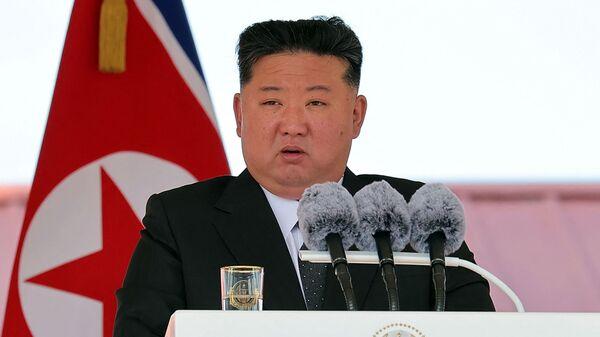North Korea’s Renewed Silence: Unpacking the Complexities Behind Its Dismissal of South Korean Engagement
In recent months, the Korean Peninsula has experienced a marked cooling in inter-Korean relations, with North Korea increasingly distancing itself from South Korea despite Seoul’s repeated attempts to initiate dialogue. This renewed aloofness from Pyongyang prompts an examination of the underlying causes—ranging from internal political priorities to external geopolitical pressures—and what this means for peace and stability in Northeast Asia. This article explores these dynamics, offering insight into North Korea’s strategic posture and potential pathways forward.
Decoding Pyongyang’s Calculated Quietude: Domestic and Historical Drivers
The current freeze in communication between the two Koreas is not merely a spontaneous reaction but rather a deliberate tactic shaped by multiple factors within North Korea’s political framework. Despite Seoul’s efforts to open channels for cooperation, Pyongyang remains reticent, reflecting a broader strategy that prioritizes regime security over diplomatic engagement.
- Internal Regime Stability: The leadership in Pyongyang often views external overtures as potential threats that could undermine its control. Maintaining strict internal cohesion takes precedence over foreign diplomacy.
- Bargaining Power Maintenance: By sidelining South Korean initiatives, North Korea preserves leverage to negotiate on its own terms when it chooses to engage.
- The Shadow of Past Failures: Previous attempts at dialogue—such as those during Moon Jae-in’s presidency—have frequently ended without tangible progress, fostering skepticism about future talks without concrete assurances.
- The Influence of External Actors: The complex interplay involving major powers like the United States and China heavily influences Pyongyang’s decisions regarding inter-Korean relations.
This pattern can be better understood by reviewing key historical moments that have shaped current attitudes toward engagement:
| Event | Effect on Inter-Korean Relations |
|---|---|
| Moon Jae-in’s Peace Efforts (2017-2022) | Initial optimism followed by stalled negotiations amid mutual distrust. |
| Annual U.S.-South Korea Military Exercises | Provoked heightened tensions and hardened North Korean rhetoric against Seoul. |
This ongoing silence serves as a strategic maneuver for Pyongyang—not only signaling defiance but also reinforcing its narrative domestically while recalibrating responses based on shifting regional power balances. It underscores how deeply entrenched mistrust continues to hamper meaningful progress toward reconciliation or denuclearization efforts on the peninsula.
Moreover, this diplomatic impasse complicates South Korea’s position internationally. With limited avenues for direct negotiation, Seoul faces challenges in advancing peace initiatives or mitigating military risks along their shared border.
The stalemate also calls into question existing diplomatic frameworks’ effectiveness and highlights an urgent need for innovative approaches tailored to evolving realities—a sentiment echoed by experts advocating fresh strategies beyond traditional state-to-state dialogues.
Ultimately, rebuilding trust will require acknowledging these historical grievances alongside contemporary geopolitical pressures while crafting flexible mechanisms capable of adapting over time if lasting peace is ever to be realized.
The Impact of Global Geopolitics on North Korean Posture Toward Seoul
The behavior exhibited by North Korea cannot be fully comprehended without considering international forces shaping its policies toward South Korea. The peninsula remains a focal point where global rivalries intersect—particularly among Washington, Beijing, and Moscow—with each actor influencing Pyongyang through various levers such as military alliances or economic dependencies.
- The U.S.-South Korean Security Alliance: This partnership acts both as deterrence against aggression but simultaneously fuels suspicion within Pyongyang about perceived encirclement or hostility.
- China’s Economic Influence: As North Korea’s largest trading partner and aid provider (accounting for approximately 90% of trade volume), China wields significant sway over its neighbor’s strategic calculations—including discouraging provocative actions that might destabilize regional order or jeopardize Beijing’s interests amid global uncertainties like supply chain disruptions post-COVID-19 pandemic recovery efforts (IMF data shows China’s GDP growth slowed slightly in early 2024).
- Evolving Sanctions Regimes: International sanctions targeting nuclear development programs continue pressuring Kim Jong-un’s regime economically yet paradoxically incentivize further militarization as bargaining chips during negotiations with both Koreas and superpowers alike.
A snapshot summary illustrates how these external elements shape decision-making processes within Pyongyang:
| Global Factor | Effect on DPRK Policy Toward ROK | ||||||||
|---|---|---|---|---|---|---|---|---|---|
| U.S.-ROK Military Cooperation (Joint drills & defense commitments) |
Triggers defensive posturing & rhetorical escalation aimed at deterring perceived threats | ||||||||
| China-North Korea Economic Ties (Trade & aide dependency) |
Encourages cautious restraint militarily while maintaining tough rhetoric | ||||||||
| International Sanctions (UN & nation-specific restrictions) | < td valign = top >
| Engagement Methodology | Description/Objective < / tr > < /thead > |
|---|---|
| Official Summit Meetings | –
Direct discussions between government leaders addressing critical bilateral issues aiming at formal agreements. |
| Track Two Diplomacy | –
Informal dialogues among scholars/experts promoting creative problem-solving outside official channels. |
| Cultural Exchanges | –
Programs encouraging interpersonal connections through arts, |
| –
Collaborative efforts targeting health care, < / tbody > < / table > These steps collectively offer promising avenues towards breaking down barriers entrenched over decades.& nbsp; However,& nbsp;sustained commitment backed by realistic expectations will be essential given persistent challenges posed by domestic politics inside both Koreas plus fluctuating international conditions.& nbsp; Concluding Reflections On A Fragile Peninsula FutureAs tensions persist along one of world’s most volatile borders,& nbsp;north korea’s continued dismissal of south korean outreach signals enduring complexities beneath surface-level interactions.& nbsp; Experts argue this stance reflects intertwined motives balancing regime survival imperatives against calculated geopolitical maneuvers amidst great power competition. The consequences extend far beyond bilateral ties affecting broader northeast asian stability where any misstep risks wider conflict escalation. With global eyes fixed intently upon developments here—including recent shifts seen after early-2024 US-China trade talks faltered—the path ahead remains uncertain yet undeniably critical. Only through patient diplomacy blending innovation with respect can hope emerge for eventual reconciliation across divided korea.& nbsp; Until then,& nbsp;north korea’s silence endures—as does uncertainty surrounding prospects for lasting peace. Learn more about ongoing international influences shaping regional dynamics here.</a> |














